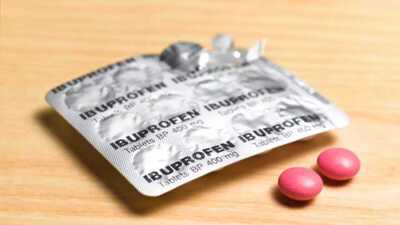What lengths would you go to maintain your digestive health? Well, when digestive organs are in trouble, not only your body but also life feels off. Thus, when it comes to their health you must remember your do's but never forget your don'ts.
Now, a gastroenterologist has revealed three things that you must avoid to protect your digestive health. Dr Joseph Salhab, popular on Instagram as 'thestomachdoc' with a following of 1.5M on the social media app recently took to it to share a video about '3 Things I would never do as a gastroenterologist.' His video has gone viral on the app with 570K views and 11.3K likes.
Video
What are these three things? Find out below!
Never take Colace

The doc shared that he would never take Colace, a brand for the laxative docusate sodium, in order to soften his stools or relieve constipation. He added that studies have shown that it is not better than a placebo. He suggested supplementing fiber with psyllium, increasing your physical activity, water intake and eating fruits such as kiwi, one of which he eats every day.
Skip certain medications

The second thing he vowed never to do is take medicines like Ibuprofen and Naproxen in the long term. He shared that as a gastroenterologist he has treated multiple cases of bleeding ulcers as these medications also work as blood thinners and most people are not aware of it.
Ignore swallowing-related problems

If you have problems swallowing food, then the doc suggests not ignoring it. He also advised getting a test called Upper Endoscopy to figure out why you have been experiencing the problem.
Is the doctor right?

Well, according to a study published in the American Journal of Gastroenterology, it is a misconception that docusate softens hard stool in constipation. Clinical trials reveal that it is no better than a placebo and patients should rather opt for other stool softening therapies.
Regarding medications like Ibuprofen and Naproxen as well, the doctor's claims hold true. According to a study published in Clinical Medicine, non-steroidal anti-inflammatory drugs (NSAIDs) can lead to gastrointestinal bleeding and perforation along with peptic ulcer disease and more.
Now, a gastroenterologist has revealed three things that you must avoid to protect your digestive health. Dr Joseph Salhab, popular on Instagram as 'thestomachdoc' with a following of 1.5M on the social media app recently took to it to share a video about '3 Things I would never do as a gastroenterologist.' His video has gone viral on the app with 570K views and 11.3K likes.
Video
What are these three things? Find out below!
https://www.instagram.com/reel/DPbvfZrCC_o/ https://www.instagram.com/reel/DPbvfZrCC_o/
Never take Colace
The doc shared that he would never take Colace, a brand for the laxative docusate sodium, in order to soften his stools or relieve constipation. He added that studies have shown that it is not better than a placebo. He suggested supplementing fiber with psyllium, increasing your physical activity, water intake and eating fruits such as kiwi, one of which he eats every day.
Skip certain medications
The second thing he vowed never to do is take medicines like Ibuprofen and Naproxen in the long term. He shared that as a gastroenterologist he has treated multiple cases of bleeding ulcers as these medications also work as blood thinners and most people are not aware of it.
Ignore swallowing-related problems

If you have problems swallowing food, then the doc suggests not ignoring it. He also advised getting a test called Upper Endoscopy to figure out why you have been experiencing the problem.
Is the doctor right?
Well, according to a study published in the American Journal of Gastroenterology, it is a misconception that docusate softens hard stool in constipation. Clinical trials reveal that it is no better than a placebo and patients should rather opt for other stool softening therapies.
Regarding medications like Ibuprofen and Naproxen as well, the doctor's claims hold true. According to a study published in Clinical Medicine, non-steroidal anti-inflammatory drugs (NSAIDs) can lead to gastrointestinal bleeding and perforation along with peptic ulcer disease and more.
You may also like

'We didn't take responsibility': Harmanpreet Kaur blasts top order after India's shock loss to South Africa

Israel agrees to end brutal Gaza war after 734 heartbreaking days

ACB arrests Neurosurgery HoD of Jaipur Medical College for taking Rs 1 lakh bribe

Federal judge halts US President Donald Trump's deployment of Texas National Guard to Chicago, say reports

Must promote ethical use of AI: LS Speaker






